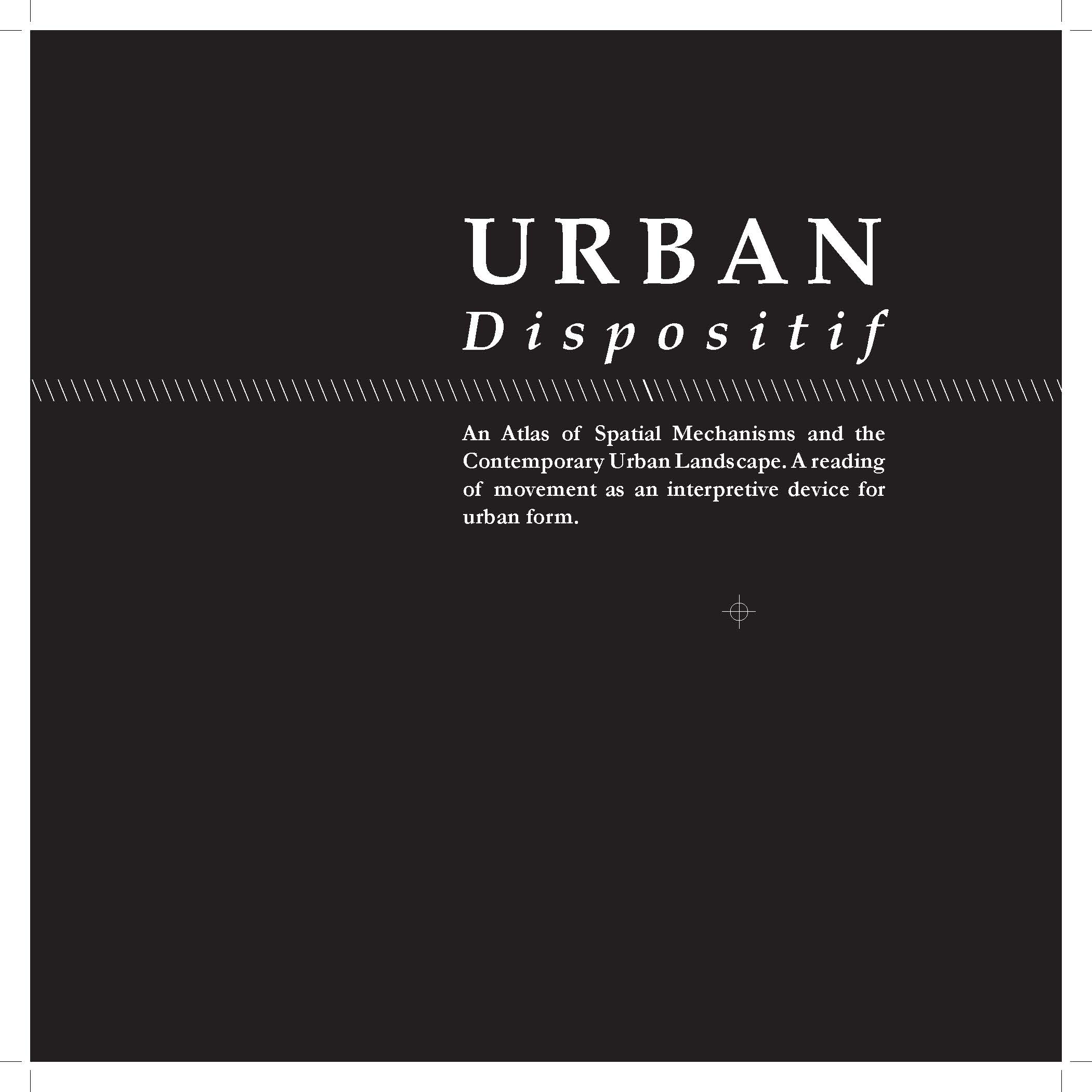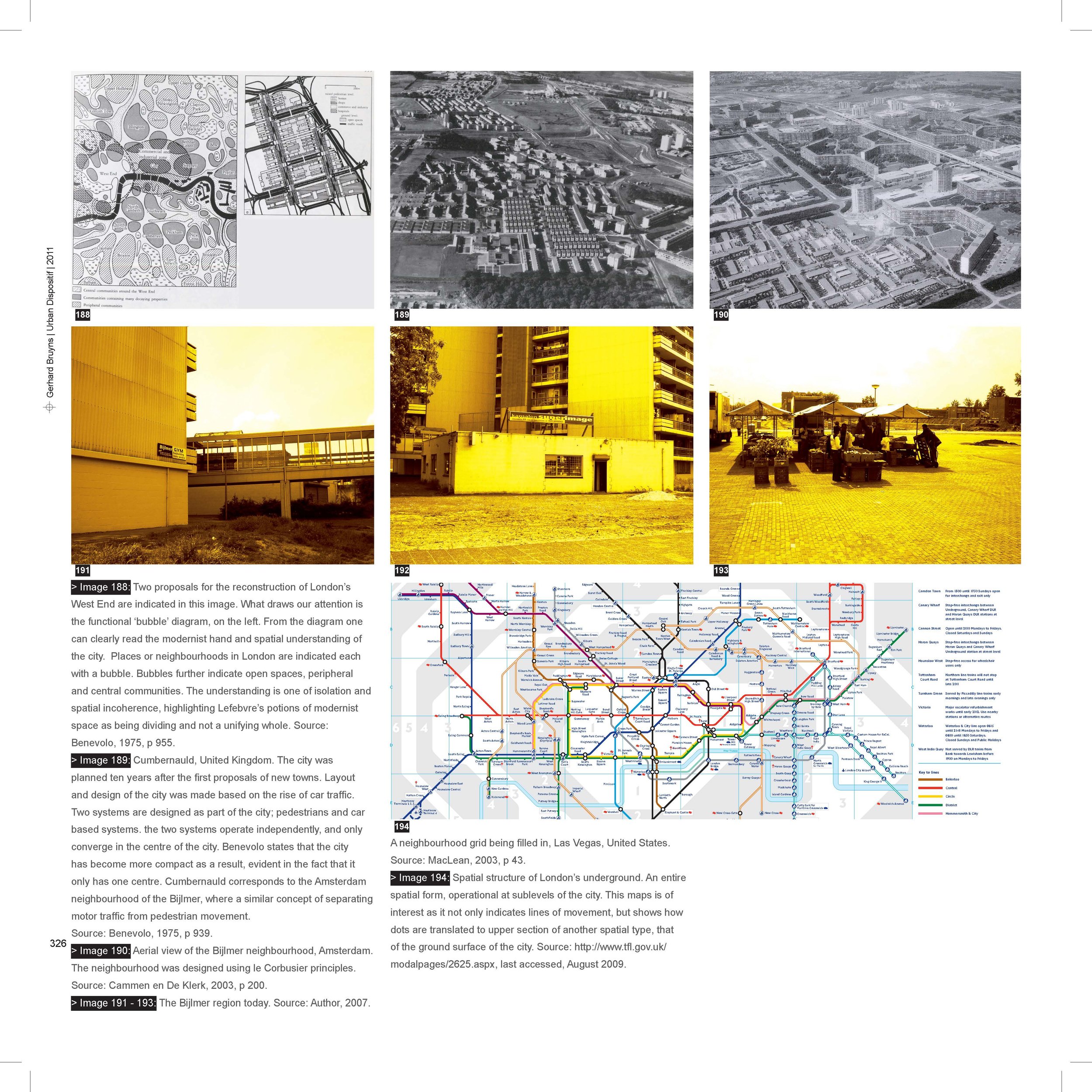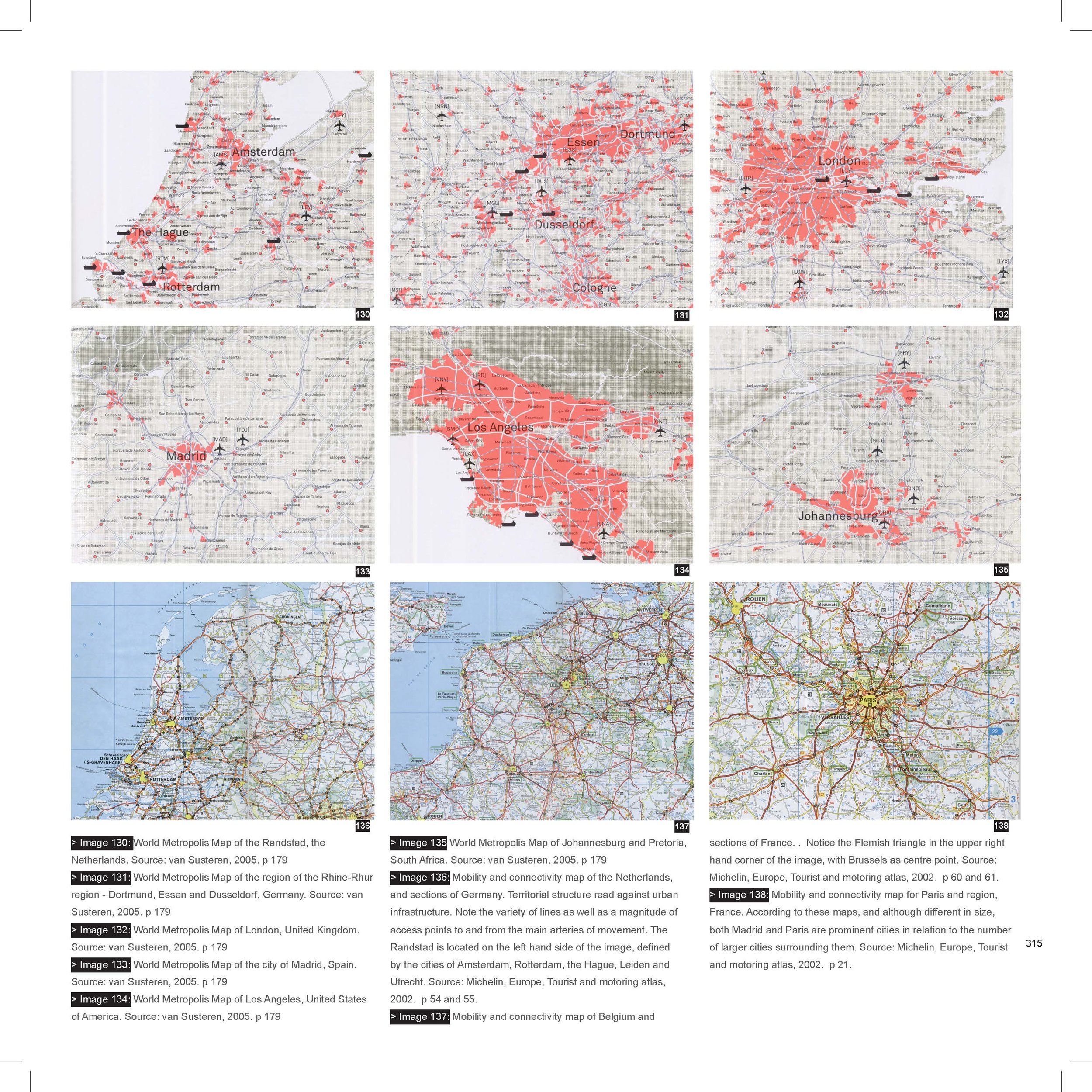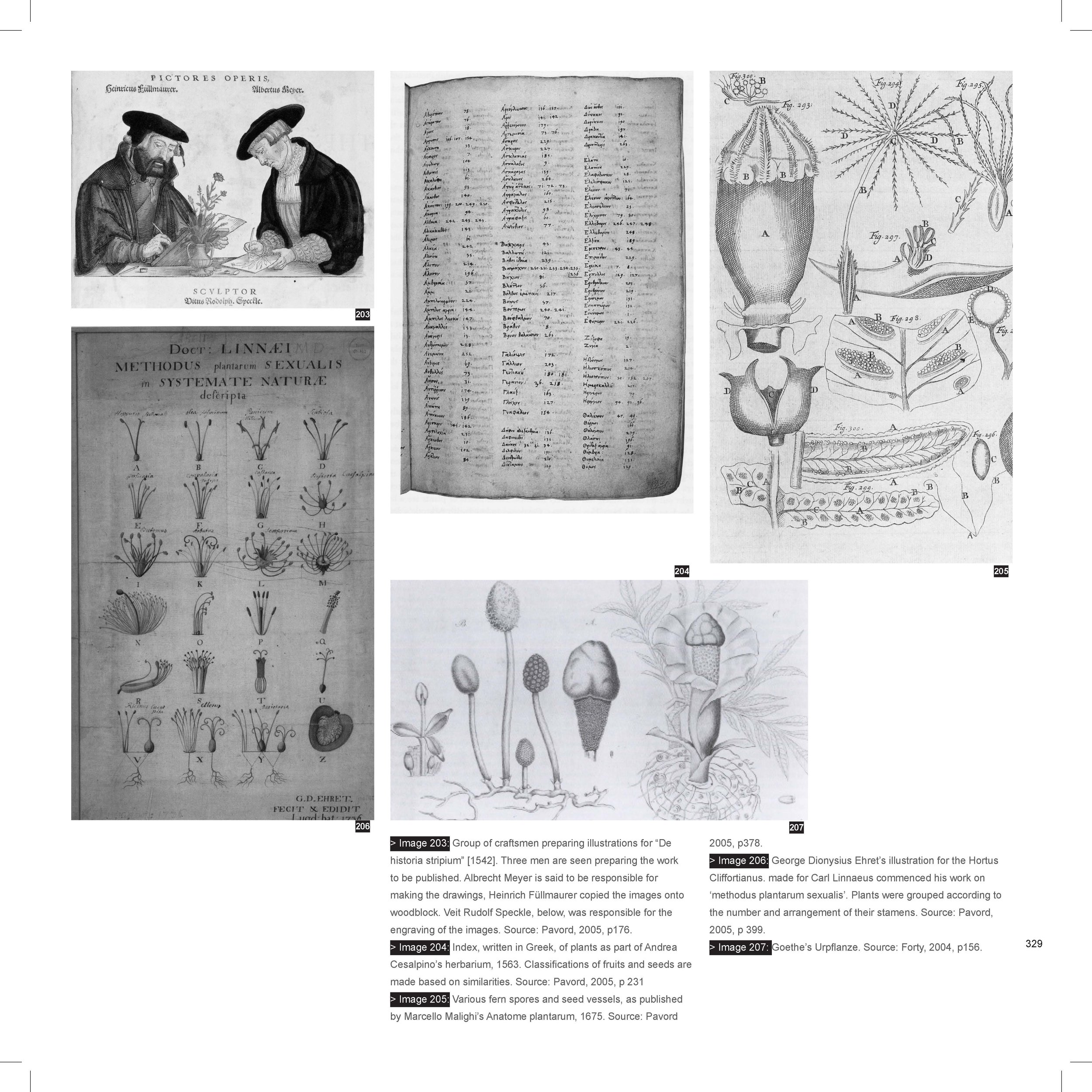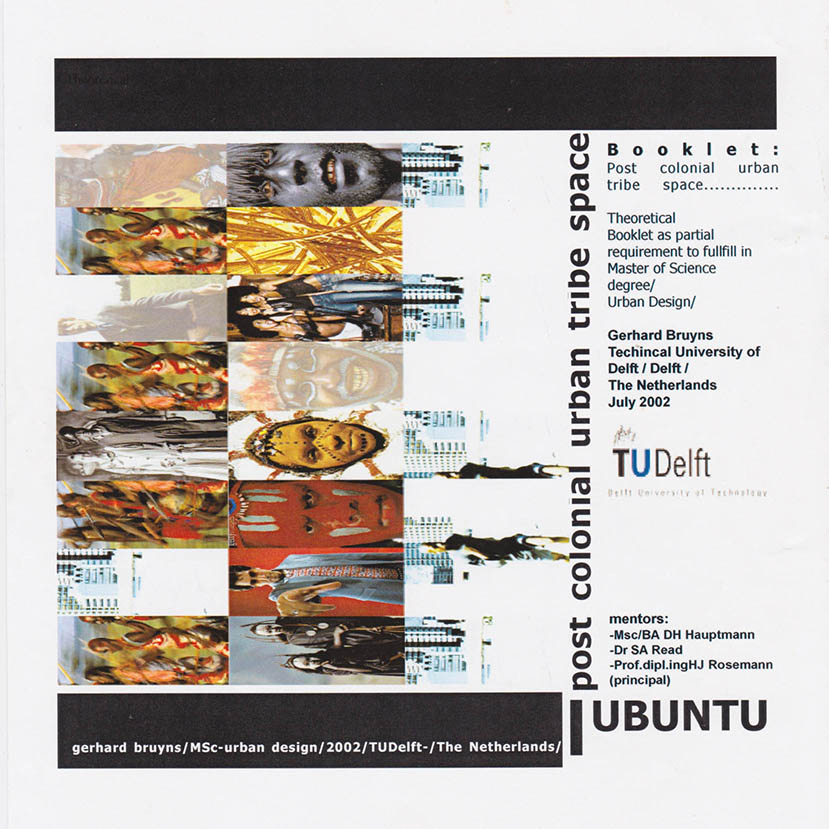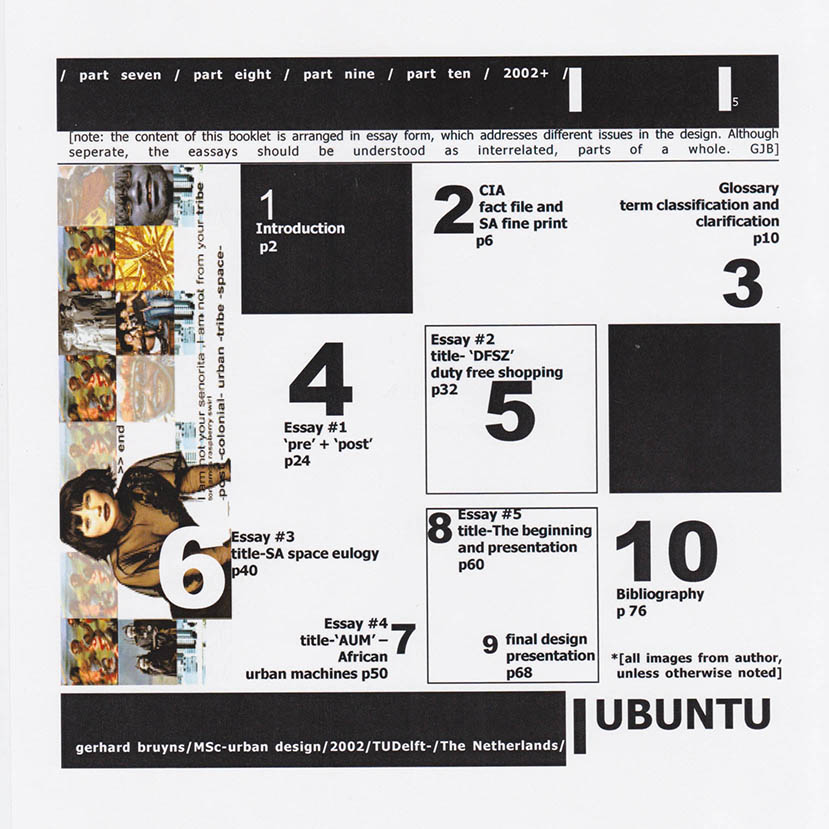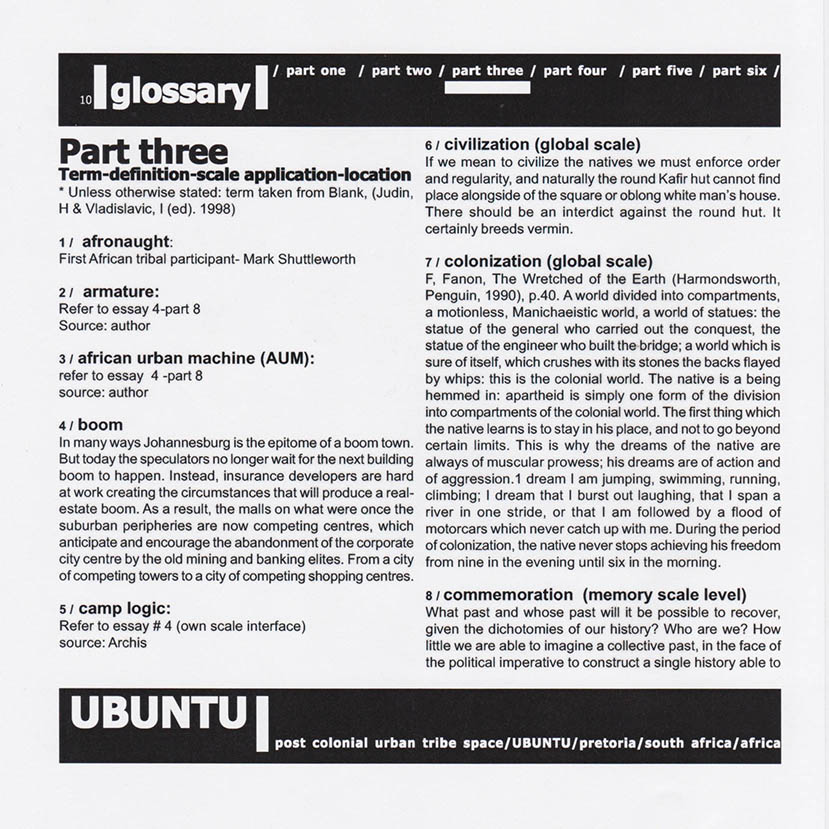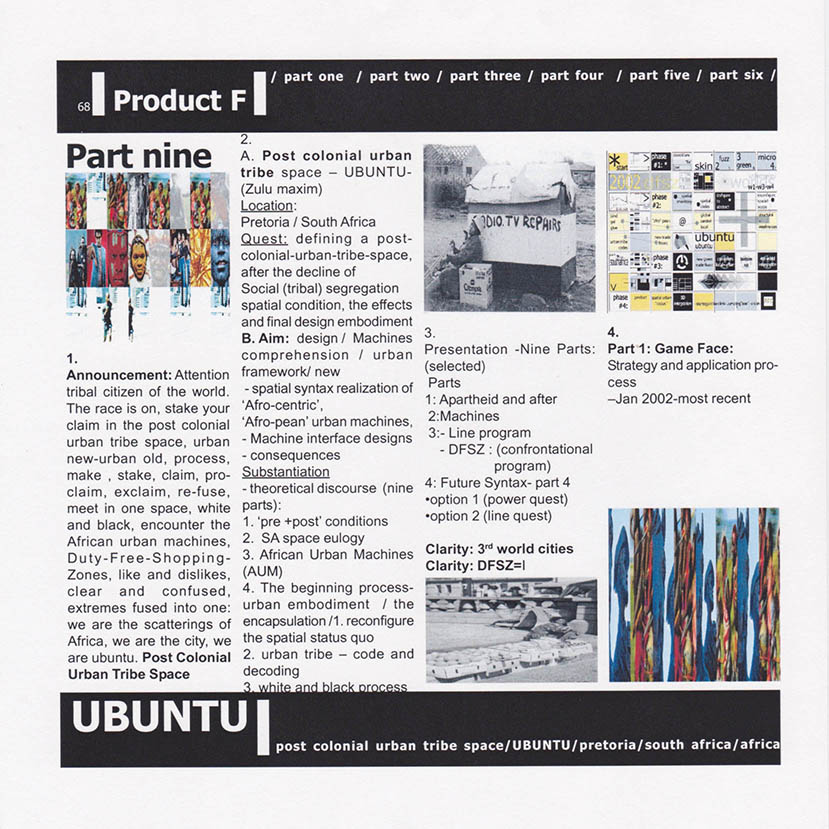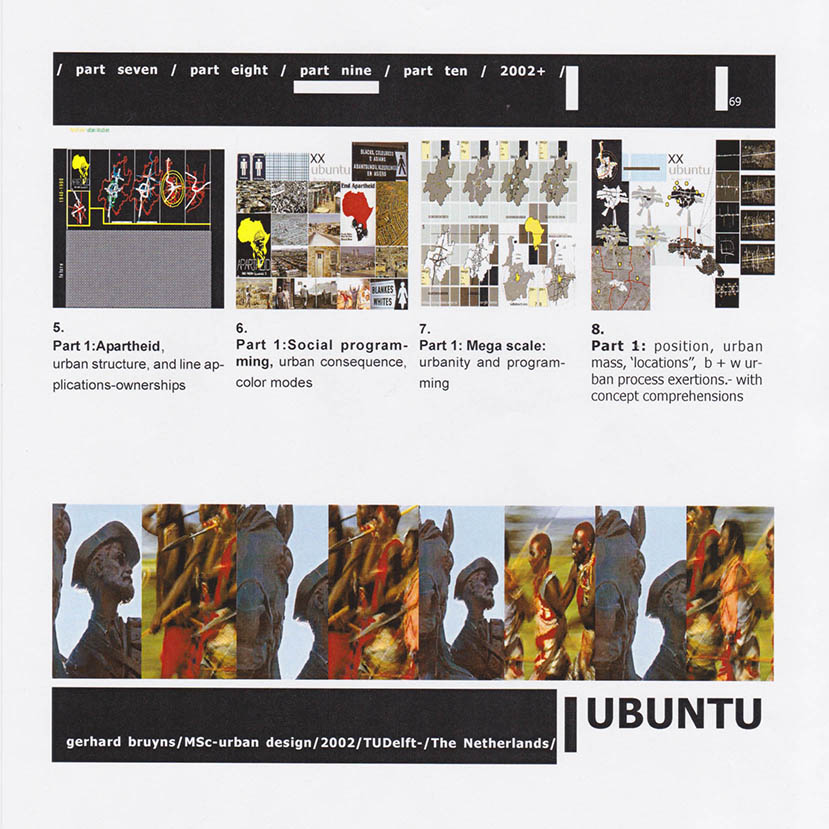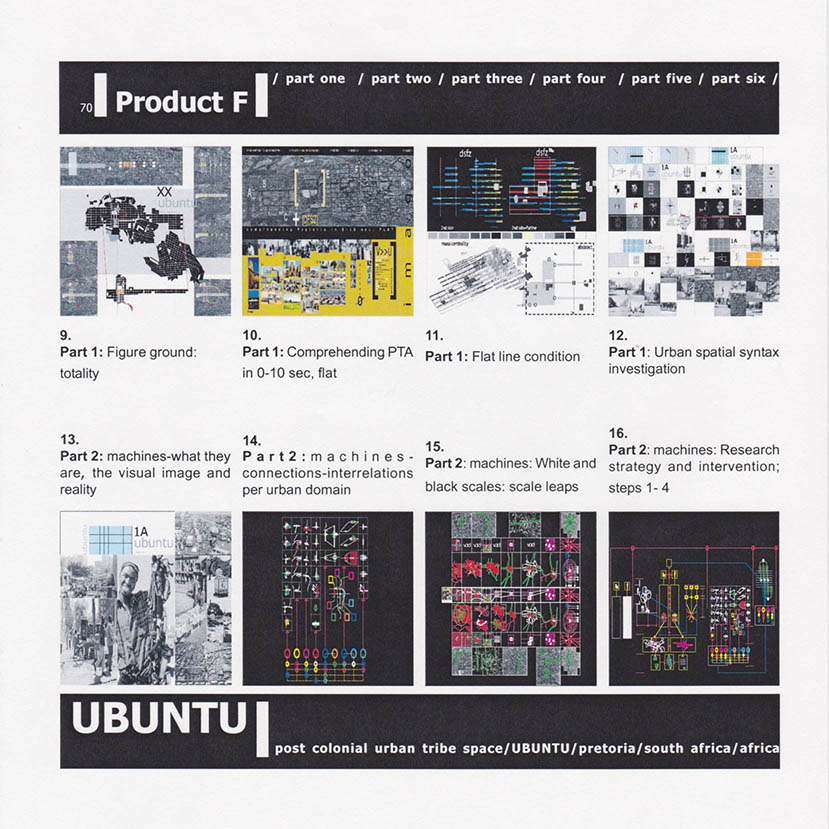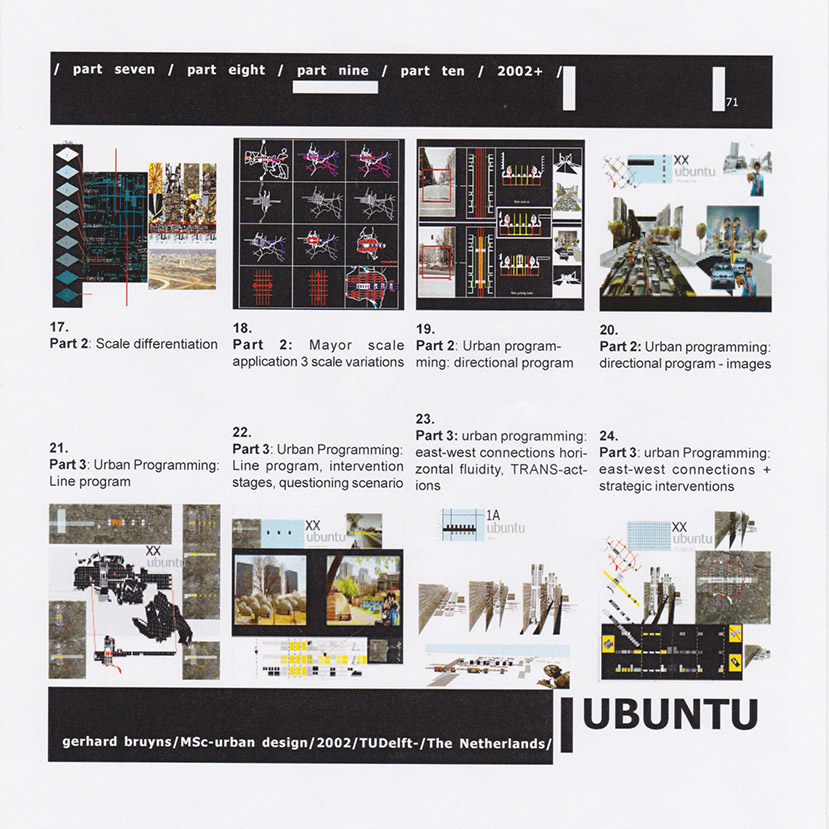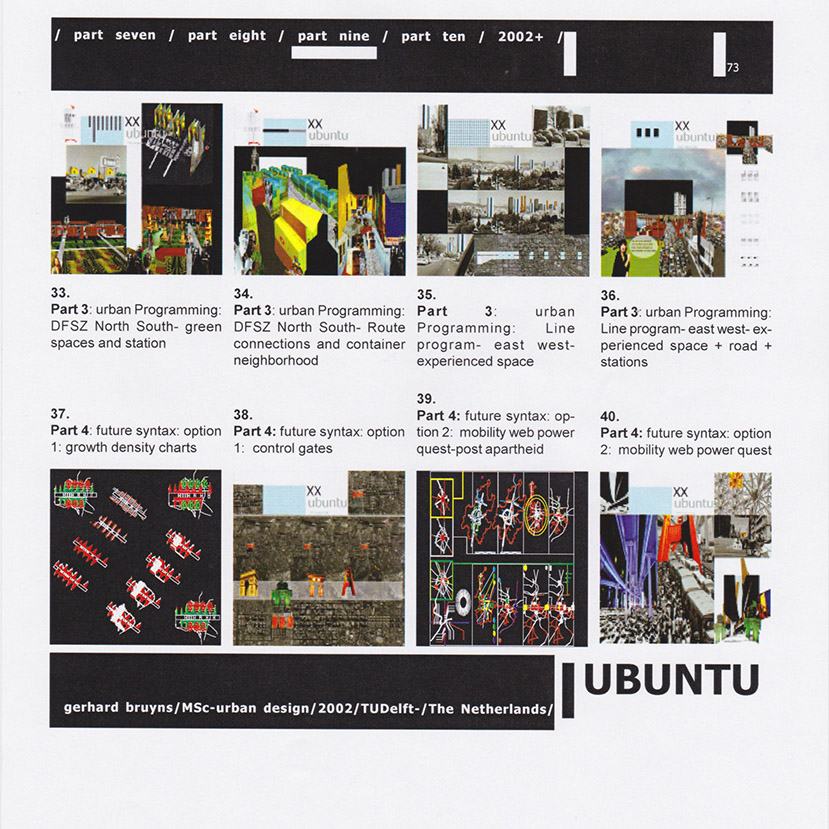Thesis
Doctor of Philosophy Degree
Faculty of Architecture, Delft University of Technology. Delft, The Netherlands, 2011.
Urban Dispositif: An Altas of Spatial Mechanisms and the Contemporary Urban Landscape. A Reading of Movement as an Interpretive Device for Urban Form.
Specialization: Urban morphology | spatial landscapes.
This thesis-atlas engages with Urban Morphology, the core debate on urban form. It forms part and parcel of a more specific and continuous Typomorphology debate. As a debate it looks at the various morphological conditions of cities, as well as the possible methodologies in existence which engage with the questions concerning the contemporary urban structure of cities. At its core, this thesis postulates an argument that the city is a city no longer. It argues that the city should rather be understood as an urbanized landscape, primarily legible through the way in which transportation infrastructure [road networks] structure regions and territories at various levels of scales.
The area of focus is that of a European urban context, with a specific interest and focus on the Dutch Randstad. The study area is a demarcated strip [60 km x 25 km], which includes Amsterdam and various other settlements within the region.
The thesis contains 4 parts. Each section is dedicated to specific research questions which forms part of the larger Typomorphological ‘problematique’ and the contemporary conditions surrounding the urban landscape. Part 01 [chapters 01 - 04] specifically addresses the general and larger spectrum of theory and background to this thesis. Part 02 [chapters 05 - 09] addresses the issues regarding the formulation of an [empirical] working method and the reclassifications of the urban structure. Part 03 [chapter 10] reflects on the entire process as well as the conclusions of the thesis. Part 04 functions as the Atlas, collecting all maps and other information as part of the visual representation of the study area, theoretical notions and data collected.
Master of Science Degree (MSc)
Faculty of Architecture. Delft University of Technology, Delft, The Netherlands, 2002.
Post-Colonial-Urban-Tribe-Space (Cum Laude).
Specialization: Spatial Structures – Post segregated urban landscapes.
The Post colonial Urban Tribe Space is the commencement of a life long process. What at first started off as a conventional urban scale of intervention, has rippled outward, making myself and others aware of the mere delicacy of the South African urban landscape and its spatial realities. Post-Colonial-Urban-Tribe-Space shifts literal boundaries. it mechanises economic thinking to strategically question how both the city and its users function. Although the syntax and structure of urban space was the initial idea, this design thesis represents a process of analysis, understanding, reapplying key concepts, whilst also backtracking conventional decision processes related to a post colonial space.
The Bachelor of Architecture (BArch, 5 Year, RIBA accredited)
Department of Architecture, Faculty of Engineering, Built Environment and Information Technology. University of Pretoria, South Africa, 1998.
Connected Isolation. A Beer Brewery as Industrial Legacy of Pretoria Architecture. (Cum Laude)
